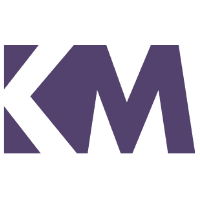Introduction
In the digital age, businesses and organizations must ensure their online presence is visible, relevant, and engaging. Whether it’s a website, blog, or digital marketing campaign, the power of keywords cannot be understated. Keywords are the bridge between what people are searching for and the content you offer. In digital marketing, they help you reach the right audience, drive traffic, and improve conversions. As search engines like Google and Bing continue to evolve, the role of keywords has become even more critical for a successful online presence.
This blog post explores the significance of keywords in digital marketing and websites, how different types of keywords work, essential tools for keyword research, and actionable tips for integrating them into your digital assets. We’ll also look at real-life examples and answer frequently asked questions.
Understanding Keywords and Their Role in Digital Marketing
A keyword is a term or phrase that users enter into search engines when looking for information, products, or services. In digital marketing, keywords are used to optimize content, advertisements, and websites to rank higher in search engine results pages (SERPs). When implemented correctly, keywords make your website and campaigns visible to the right people.
There are different types of keywords that serve various purposes in digital marketing:
- Short-Tail Keywords: These are broad and generic keywords usually consisting of one or two words. For example, “shoes” or “digital marketing.” These keywords generate high search volumes but tend to have higher competition.
- Long-Tail Keywords: These are more specific phrases containing three or more words, such as “affordable running shoes for women” or “best digital marketing agency in Kenya.” Long-tail keywords often have lower search volumes but attract more targeted and conversion-driven traffic.
- Transactional Keywords: Keywords indicating the intent to purchase, such as “buy running shoes” or “get digital marketing services.” These are essential for e-commerce and lead-generation campaigns.
- Informational Keywords: Keywords where users are searching for information, such as “how to optimize SEO” or “what is digital marketing.” These are great for blog content or educational campaigns.
- Branded Keywords: These include terms that refer to a specific brand, such as “Nike shoes” or “HubSpot CRM.” Branded keywords are usually easier to rank for if you’re targeting your brand but may have higher competition when targeting competitors’ keywords.
- Location-Based Keywords: These keywords help target specific geographical areas, like “best pizza in Nairobi” or “digital marketing services in Kenya.” They are critical for local SEO.
Industry Stats on Keywords in Digital Marketing
- 61% of marketers say improving SEO and growing their organic presence is their top inbound marketing priority.
- 75% of users never scroll past the first page of search results, highlighting the importance of ranking well for the right keywords.
- Businesses that implement a strong keyword strategy see a 434% increase in indexed pages, which means more chances of appearing in relevant searches.
- According to Google, websites that rank on the first page for relevant keywords drive 90% of organic traffic, showing the value of targeting the right terms.
Real-Life Examples of Effective Keyword Usage
- Amazon: Amazon dominates e-commerce by using a sophisticated keyword strategy that targets both short-tail and long-tail keywords. By optimizing product descriptions and creating dynamic keyword-based search suggestions, they ensure that customers find products relevant to their searches, resulting in higher conversions.
- HubSpot: A leader in inbound marketing, HubSpot successfully integrates informational keywords in their blogs and resources. They create content around long-tail keywords like “how to create a marketing plan” and “SEO tools for small businesses,” driving high traffic from users seeking detailed insights.
- Nike: Nike uses branded and location-based keywords strategically in their marketing campaigns. By optimizing for terms like “Nike running shoes” and geo-targeting specific locations, they attract a global audience while maintaining a local touch.
5 Tools for Keyword Research
- Google Keyword Planner: A free tool that provides insights into search volume, competition, and suggested bid prices for paid campaigns. It’s excellent for finding relevant keywords to target in your SEO and Google Ads campaigns.
- SEMrush: This comprehensive tool allows you to find keywords your competitors are ranking for, track keyword performance, and discover opportunities for content and paid campaigns. It’s ideal for competitive analysis and improving keyword strategy.
- Ahrefs: Known for its backlink analysis capabilities, Ahrefs also has a robust keyword research tool that helps you identify high-performing keywords, monitor competitors, and track organic traffic growth.
- Moz Keyword Explorer: Moz provides accurate data on keyword difficulty, search volume, and organic click-through rates, helping you determine which keywords offer the best potential for ranking.
- Ubersuggest: Developed by Neil Patel, Ubersuggest is a beginner-friendly tool that offers keyword suggestions, content ideas, and competitor analysis. It’s great for small businesses looking to optimize their websites and content.
Integrating Keywords into Your Digital Assets and Campaigns
- Website Content: Keywords should be strategically placed in your website’s content, including headings (H1, H2), meta descriptions, and image alt texts. Focus on integrating long-tail keywords in your blog posts, service pages, and product descriptions.
- URLs and Meta Tags: Ensure that URLs are short, descriptive, and include primary keywords. Meta tags, particularly the title and description, should contain relevant keywords as they influence how your page appears in SERPs.
- Paid Search Campaigns: In Google Ads or Bing Ads, use both short-tail and long-tail keywords for targeting. Use negative keywords to exclude irrelevant traffic and ensure your budget is spent effectively.
- Social Media: Include keywords in social media content and hashtags to boost the visibility of your posts. For example, a post about digital marketing tips can use hashtags like #SEOtips or #DigitalMarketingStrategy to reach a broader audience.
- Email Marketing: Keywords play an essential role in crafting engaging email subject lines and content. Incorporate relevant keywords that resonate with your audience’s interests, making your emails more likely to be opened and clicked.
5 Frequently Asked Questions (FAQs) About Keywords in Digital Marketing
- Why are keywords important in SEO? Keywords help search engines understand the content of your website, making it easier for users to find your pages when they search for related topics. They improve your chances of ranking higher in SERPs.
- What is the difference between short-tail and long-tail keywords? Short-tail keywords are broad and general, with higher search volumes but more competition. Long-tail keywords are more specific, have lower search volumes, but attract more targeted traffic with a higher conversion rate.
- How often should I update my keyword strategy? Regularly review your keyword strategy every 3 to 6 months. However, major changes in search trends or business focus might require more frequent updates.
- Can I use the same keywords across multiple pages? While it’s possible, it’s not always ideal. Overusing the same keywords across multiple pages can lead to keyword cannibalization, where your pages compete against each other in search results. It’s better to diversify keywords.
- How do I find the best keywords for my business? Use keyword research tools like Google Keyword Planner, Ahrefs, or SEMrush to find relevant keywords. Focus on terms that are popular with your target audience but have low competition.
Conclusion
Keywords are the foundation of digital marketing and website optimization. Whether you’re building a new website or launching a digital marketing campaign, selecting and using the right keywords can make all the difference in reaching your target audience. By conducting thorough keyword research, integrating them into your content, and regularly updating your strategy, you’ll improve your search engine rankings, increase traffic, and ultimately, boost your business growth.
In a world driven by search engines and online visibility, mastering the art of keyword usage is essential for staying competitive and thriving in the digital landscape.







 Stay ahead in the digital world! Don’t just read—put the insights from The KWETU Blog into action today and watch your brand grow.
Stay ahead in the digital world! Don’t just read—put the insights from The KWETU Blog into action today and watch your brand grow. 
